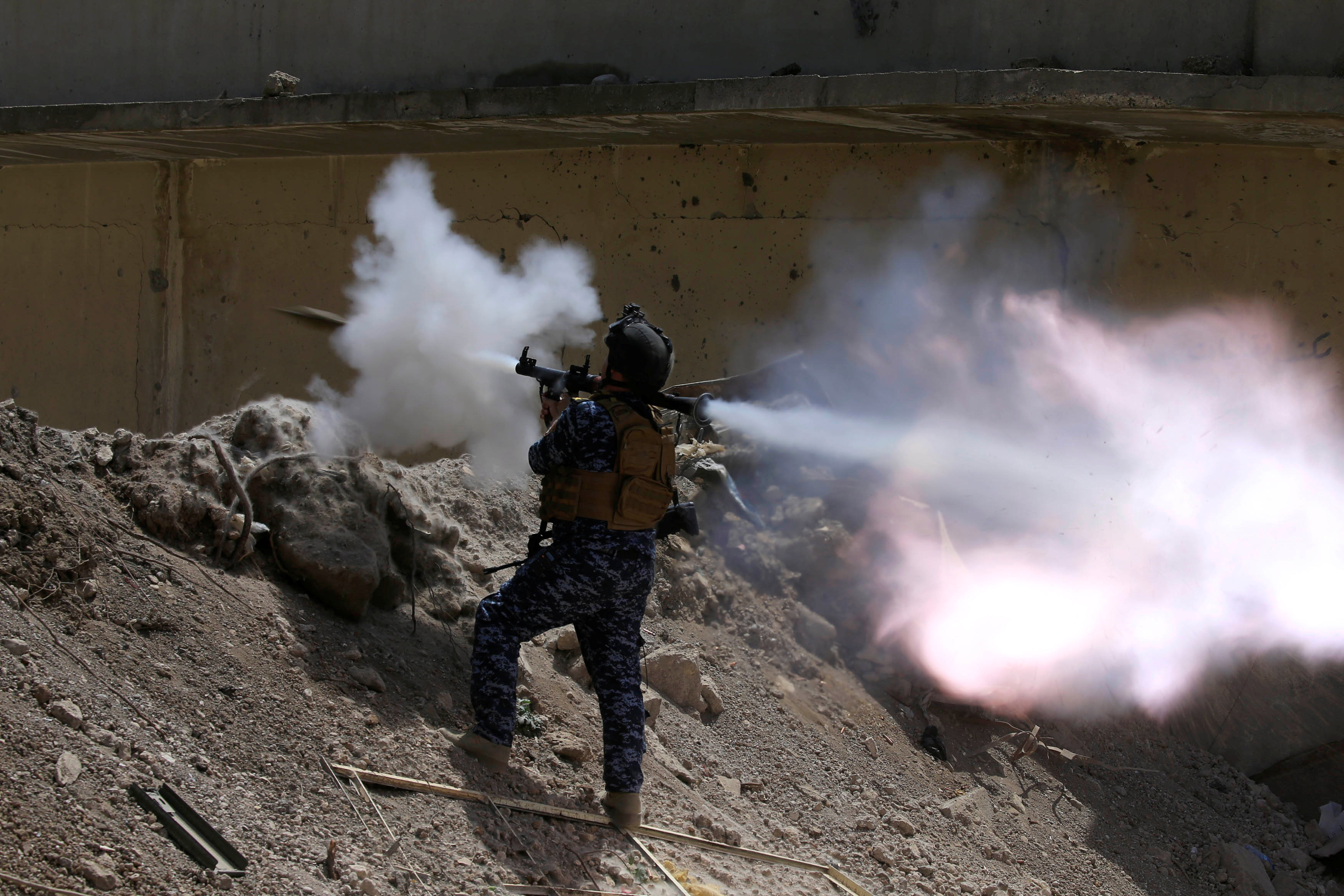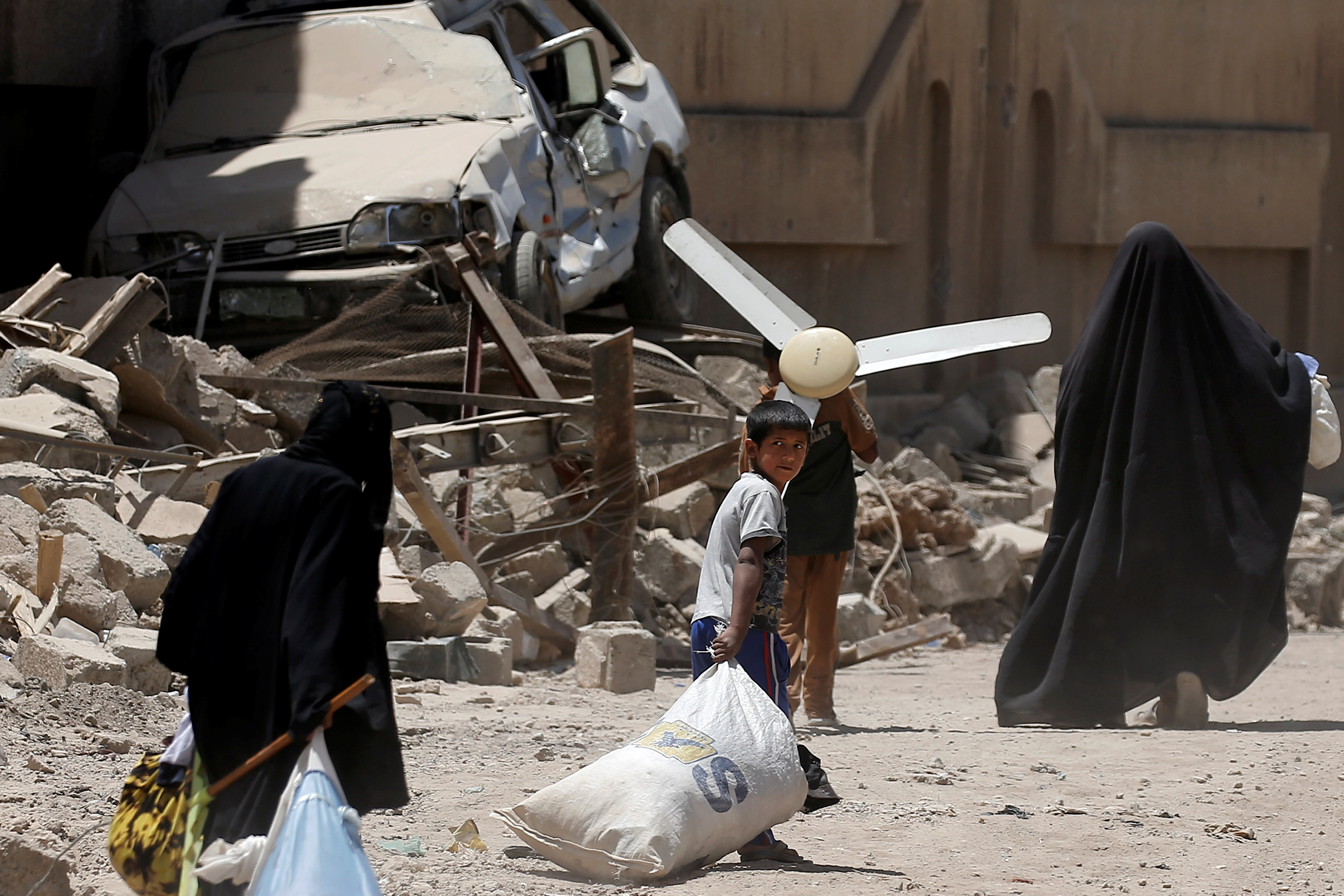
By Lisa Barrington
BEIRUT (Reuters) – U.S.-backed Syrian forces aiming to oust Islamic State from its Syrian stronghold Raqqa captured a ruined fortress on the edge of the city on Wednesday and a U.S. coalition official said the attack was set to accelerate.
The U.S.-backed Syrian Democratic Forces (SDF), which includes Arab and Kurdish militias, on Tuesday declared the start of its offensive to seize the northern Syrian city from Islamic State, which overran it in 2014.
With tens of thousands of people uprooted by the fighting, a U.N. official warned of a dire humanitarian situation, with shortages of food and fuel. The YPG militia, which is part of the SDF, called for international humanitarian aid.
“We are receiving reports of air strikes in several locations in Raqqa city,” U.N. aid official Linda Tom told Reuters by phone from Damascus.
By Wednesday, the SDF had moved into the western outskirts of Raqqa and were trying to advance into an eastern neighborhood. Shelling and air strikes from the U.S.-led coalition hit targets around the city’s edges, according to a war monitoring group and the YPG.
West of Raqqa, the SDF cleared Hawi Hawa village and took the more than 1,000-year-old Harqalah fortress ruins, YPG militia spokesman Nouri Mahmoud told Reuters by phone.
To the east, there were clashes in the al-Mishlab district, the first quarter the SDF entered on Tuesday, Mahmoud and the Syrian Observatory for Human Rights war monitor said.
The Raqqa assault overlaps with the final stages of the U.S.-backed attack to recapture Islamic State’s capital in Iraq, the city of Mosul.
Brett McGurk, the American envoy to the U.S.-led coalition against Islamic State, said it was significant that the SDF now had a “foothold” in Raqqa.
The Islamists are “down to their last neighborhood in Mosul and they have already now lost part of Raqqa. The Raqqa campaign from here will only accelerate,” McGurk said in Baghdad on Wednesday.
But he said the coalition and SDF were prepared for “a difficult and a long-term battle”.
Islamic State has been forced into retreat across much of Syria. Its biggest remaining foothold is in the eastern province of Deir al-Zor, which borders Iraq.
PEOPLE ON THE MOVE
The U.N.’s Tom said an estimated 50,000-100,000 people were trapped inside Raqqa, far fewer than its population before the Syrian war erupted in 2011. Many have fled to camps elsewhere in Syria.
In some areas around Raqqa, where the SDF has recently taken control, people had started returning home, said Tom, but yet more were still being uprooted and the situation was very fluid.
YPG spokesman Nouri Mahmoud told Reuters displaced people were coming from all edges of the city after finding their own routes out.
He said when refugees arrived at SDF positions they were being given tents and upplies, but much more humanitarian support was needed to cope with the large numbers.
“Their situation is tragic, it is difficult. There isn’t much support for them,” Mahmoud said.
McGurk said the coalition was working with the SDF on a humanitarian response.
Now in its seventh year, the Syrian conflict has killed hundreds of thousands of people and driven more than 11 million people from their homes.
(Reporting by Lisa Barrington in Beirut and Ahmed Rasheed in Baghdad; Writing by Lisa Barrington; Editing by Tom Perry and Andrew Roche)










